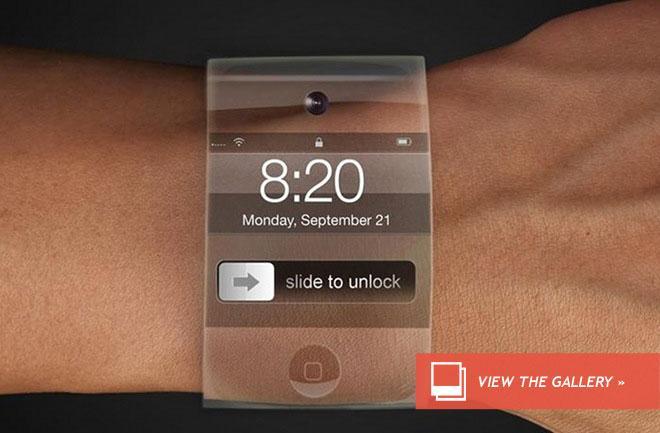
Cell phones are weird. Yes, weird. They're unpredictable little pieces of technology; even when you think you know the direction they're heading in, something changes. Take a look at cell phones in the 80's. They're some of the ugliest clunkers you could ever lay eyes on, but who cared? The point was that you could take your phone with you wherever you went, and that in itself made cell phones cooler than cool, even if they didn't look like it. Heading into the 90's cell phones got smaller, just as they continued to do into the turn of the century until around the middle of the decade, where the rise of the smartphone really started. It's now 2013 and the most popular devices, for the most part, are far from the smallest we have ever seen them.
They're called phablets, and they're closing in on reaching their limit. Phablets were meant to be a mid-size phone option between smaller touchscreen devices, such as the previous 3.5-inch iPhones, and 7" tablets. There are 3.5 inches of wiggle room there to play around with when it comes to phone sizes, and every day we get closer to reaching that limit. We would see the 4-inch, the 4.3-inch, the 4.7-inch, the 5-inch, and even the 5.5-inch with the Samsung Galaxy Note II. Samsung even kicked it up another notch by showing off its Galaxy Mega 6.3-inch device, with its main defining feature being... well, a really big phone - but not the biggest. The biggest phone ever announced, but still not yet released, is the Sony Xperia Z Ultra with a 6.4-inch screen.
The clear trend at the moment is to keep making the screens larger, and sooner or later somebody is going to have the first 6.99-inch phone, technically keeping it in the "phablet" category (but everyone will know that it's really just a tablet in disguise). Once you've reached that limit, what will phones do? Will they continue to push for 7" tablets to move up the next tier to 8" tablets? Will they start to decrease in size again? While I don't think that people would be jumping for joy for phones with smaller screens to suddenly become popular again in the same way they were made before phablets became the new thing, I do think that smaller screens will become popular again one day; this time, in the form of a smartwatch.
Just earlier today UK's Vodafone posted a blog discussing the future of smartphones - phablets, in particular - and where they were thought to be headed. Although the phablet is expected to continue to remain popular for the foreseeable future, smartwatches are also predicted to become more popular as well.
I wasn't extremely keen on smartwatches at first, but the more I see phones grow the more I'm starting to see just how useful that device could be, especially for potentially being able to make and receive phone calls. Phablets are getting bigger, but our hands don't. It might be more convenient to text and share data on a larger phone, but phone calls (which is typically a one-handed job) becomes increasingly difficult. That's where a smartwatch can come in handy.
Most of you already know that smartwatches are generally worn the same way that regular watches are worn - on your wrist of choice with the face of the clock facing yours. If you were to hold your wrist up to your ear just like that for a private phone call, it can seem like an uncomfortable idea. I've already taken the liberty of looking like an idiot by holding my arm up to my head as if I was wearing a smartwatch for a phone call to see just how uncomfortable it is. It's about as uncomfortable as it sounds. Go ahead, try it. Not exactly that comfortable, is it? This method probably wouldn't work for regular phone calls, but what does work is turning your smartwatch so the face is now on the underside of your wrist. Now hold your wrist up to your ear as if you were going to take a phone call with your cell phone, except with your wrist at your ear. Not so bad now, huh? This is where I could see this idea really playing into the whole convenience factor. Not only is it already attached to your wrist, but you don't even have to change the way you answer phones very much. Just raise your arm a little higher and voila!
At first smartwatches would be seen as more of an accessory to the smartphone, kind of like they are now, but given enough time and development I could see it being a viable option all on its own for people who would rather have a device like that instead of a full-on smartphone. I would be willing to give it a try, at least.
What about you, readers? Can you see smartwatches becoming the next "phone", or do you think that the idea is too complicated/strange to catch on? Let me know your thoughts in the comments below!
Image via Discovery